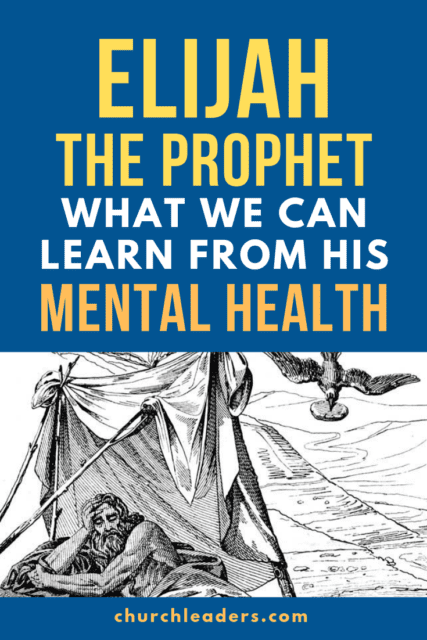Elijah the Prophet, a Preacher Just Like Us
Ministry can be overwhelming at times and loneliness can set in, having a deep-rooted effect and setting off a chain of events. Elijah’s mental and physical condition suggests he is in a state of desperation. He is depressed, and on the run, in what we call the fight, flight, or freeze syndrome.
The story in 1 Kings 19:1–18 ends with Ahab heading back to Jezreel to bring the sad news to Jezebel. God is still in charge and Elijah the Prophet is under divine surveillance, and the presence of the Lord was present to heal and save at all cost.
Are you at a point of depravity in ministry, wanting to stop right here? The prophet Elijah is so stressed out that he has given up on the belief that he can make a difference. Why did Elijah the Prophet run away? Why do we cover up what is happening to us today? God knows who we are, where we are, and what we are going through, and he will provide what we need in a timely manner. Sometimes we just need to analyze what is happening to us. Note the following:
- Elijah was not thinking rationally or realistically.
- Elijah separated himself from those who could strengthen him. It is interesting how human nature works. When we get discouraged, we tend to do withdraw from human contact, and that is often the worst thing we can do! There are those around us who are trustworthy and will offer sustainability in our time of need. It is a good practice to share our ministry work with those we have equipped to serve in greater capacities. Our work can overwhelm us, often leaving us drained spiritually, emotionally, and mentally.
- Elijah’s vulnerability came on the heels of a great spiritual victory.
- Elijah was exhausted physically and emotionally.
- Elijah got lost in self-pity. The Bible says, “But he himself went a day’s journey into the wilderness and came and sat down under a broom tree. And he prayed that he might die, and said, ‘It is enough! Now, LORD, take my life, for I am no better than my fathers!’”
Elijah’s request for God to take his life does not make much sense if you think about it. He is here in the wilderness because Jezebel had threatened his life; if he wanted to die, all he had to do was stay put and Jezebel would have been more than happy to help him out. Most of us have our “desert days” of despair. The Lord promises to never leave us nor forsake us.
Elijah the Prophet is well spoken of as a man of deep devotion and obedience and admired for his strong faith. But then there comes a time in his ministry describing Elijah’s breakdown, humiliation, failure, and defeat, just as we often experience today—a man just like ourselves! It is alright for us as pastors to say we are not ok. What an enlightening statement to hear from our leaders for those who may be suffering while going through a mental illness.




